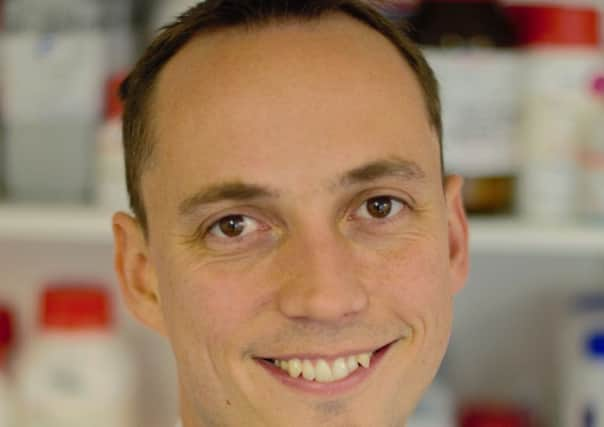Upper Heyford firm playing role in fight to prevent Zika virus spread


The outbreak was declared a ‘public health emergency of international concern’ by The World Health Organisation (WHO) this week and the Native Antigen Company, based at Cherwell Innovation Centre, has developed the world’s only available Zika virus NS1 protein from human cells.
It will provide a superior way of diagnosing the virus that enables doctors to detect if patients have been infected long after the window for detection is closed for traditional methods.
Advertisement
Hide AdAdvertisement
Hide AdThe company is also working closely with government agencies to develop a diagnostic kit due to be launched ahead of this year’s Olympic Games in Rio de Janiero to detect the infection spreading to the UK as people make their way back from the summer games.
Dr. Nick Roesen, chief scientific officer and co-founder of The Native Antigen Company, said: “We have been selling Zika NS1 protein worldwide and are already on our third production run since December.
“Our antigen has been developed in our proprietary mammalian cell expression system with significant advantages over alternative approaches which are important for detection.”
“The differential diagnosis of Zika virus infection is difficult, with nucleic acid-based tests only possible during initial presentation of the fever. Our unique protein enables a greater spectrum of serological tests to be developed which will help diagnosis and epidemiology.”
Advertisement
Hide AdAdvertisement
Hide AdThe Zika virus is carried by female Aedes aegypti mosquitos that spread it by biting someone who is infected and then biting someone else.
For now, the Zika virus is concentrated in the tropical parts of Brazil, but it is spreading across the Americas with three to four million cases predicted by the WHO in the next 12 months.
Doctors fear the virus may lead to an epidemic of birth defects such as microcephaly where babies are born with small heads and underdeveloped brains.
Pregnant women have already been told to avoid travelling to 24 countries in Central and South America.
Advertisement
Hide AdAdvertisement
Hide AdDr Roesen said: “The spread of Zika virus where Dengue and Chikungunya epidemics are common, has now presented a new challenge for clinicians; trying to identify exactly which virus a patient may be presenting with. Although there are no cures for any of these infections, it is clinically important to be able to distinguish the three infections as patient management does differ.
“Our team is now producing to meet the demand for Zika NS1 from our labs at Cherwell Innovation Centre in addition to developing a diagnostic kit for wide-spread use from the summer. This is taking our company into a new area and we have been able to draw from the experience of some of our neighbours at the Innovation Centre who have already been through this process.”
The Native Antigen Company first created its Zika virus NS1 protein eight months ago following research into Dengue Fever.
Cherwell Innovation Centre is managed by Oxford Innovation, the UK’s leading operator of Innovation Centres, providing flexible agreements for start-ups interested in lab, office or meeting room space.
Advertisement
Hide AdAdvertisement
Hide AdTom Hanney, regional manager, North Oxfordshire, Oxford Innovation, said: “Cherwell Innovation Centre has become a hub for science and technology businesses who are leading their field of expertise and The Native Antigen Company is a fantastic example.
“We will continue to support the team in every way we can and provide additional lab or office space when necessary. Fortunately, the business model that Oxford Innovation has developed enables small and medium sized companies to avoid the headache of inflexible agreements and react to their market by expanding or decreasing in size at short notice.”
For further information about The Native Antigen Company, visit thenativeantigencompany.com